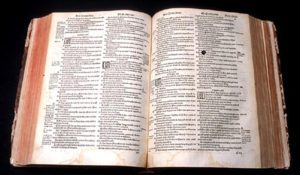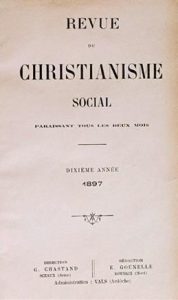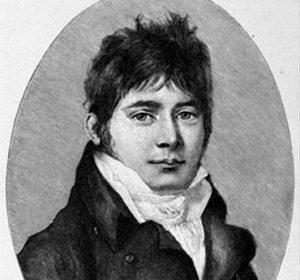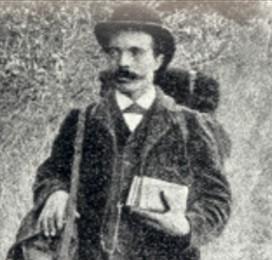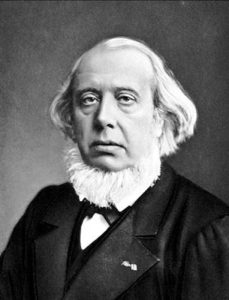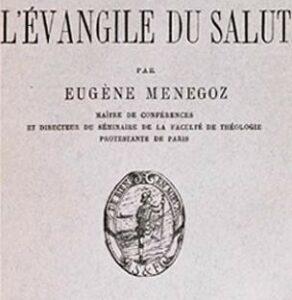An era of change
As the German theologian Ernst Troeltscher (1865-1922) rightly remarked, Luther, Calvin, Zwingli, and their immediate followers were closer to 16th century Roman Catholics in their way of thinking, their behaviour and their sensitivity than to present day Protestants They lived in the same cultural and social environment, they reasoned in similar ways to that of their contemporary Catholic opponents.
In the 19th century great changes took place. The context was no longer the same ; different intellectual and spiritual ways of thinking arise, together with new problems. Alongside those who wished to keep the main traditional answers and solutions, (the so-called « orthodox »), others (referred to as “liberals”) suggested theological changes ; some of the latter are so important that the term « neo-Protestantism » came into use.
How to read the Bible
During the classical period most people considered the Bible as a sacred book inspired by God. In the 19th century, studies of a historical nature, led by university scholars, tended to show that the Bible was the work of individuals or groups of believers. The latter expressed with their own sensitivity their conceptions, or even their superstitions, in the biblical texts. The Old and New Testaments owed their origin to ancient Middle-Eastern religious literature ; they contain myths, legends and tales, such as the accounts of creation, of the birth of Jesus and many of miracle stories.
When such conclusions of historians are accepted, the status of the Bible is modified, and the manner of reading changes. The Bible is no longer an infallible text coming directly from God, but an imperfect human testimony that reflects the authentic spiritual experience of meeting God. It has to be interpreted in order to find the underlying truth imperfectly expressed in human language. Some 19th century Protestants were very enthusiastic about this new approach which they found liberating, while others were outraged and deemed it to be destructive. The latter had a new task laid before them : that of explaining how divine inspiration works and to what extent it allows the Bible to be considered as a revealed text.
What is truth ?
For a long time an « objective » idea of truth was founded on the perfect adequacy of the discourse to its object, i.e. a statement was true if it gave a truthful account of its object. Protestant and Catholic churches alike were convinced that their dogmas truthfully described the intimate nature of God and the reality of divine action. As such dogmas were absolute, unchangeable formulas, valid anywhere and at all times.
In the 19th century such « dogmatism » was strongly contested. Under the influence of Kant, it was claimed that our descriptions, analyses and the way objects were apprehended depended as much on what we are as on what they are. Seen with different eyes, they would look different. Words do not describe things the way they are, but as we perceive them through our minds’ “glasses” ; the latter giving the reflection of our inner being, our culture and our experience.
If such is the case, religious doctrines do not talk about God’s being, but about how we are moved by him, and how we perceive him. So, as man’s experience and thought changed, doctrines did the same. For instance Trinitarian and Christological doctrines relied on Hellenistic ways of thinking that belong to another cultural era whose language we neither speak nor understand. Instead of keeping old formulas, new ones should be coined to express current experience and ways of thinking, while bearing in mind that they likewise will be criticised and revised.
This matter gave rise to vehement debate. For some, e.g. the fideo-symbolists, doctrines express our way of believing and are thus of relative value only ; theology analyses and describes the experience of faith. For others, e.g. the orthodox, doctrines define the very contents of belief, theology determines the experience of faith and sets up its structure.
Towards a secular society
In the 16th century society and religion were amalgamated. Living in a country meant practising its religion. It was hard to imagine a country with several religions and a government that would adopt a neutral attitude towards them. All aspects of society and every human activity were ruled over by religion.
As from the 18th century, the impact of religion on society and culture diminished. Secular thought developed as science, philosophy, morals and politics tended to break away from religion. The horrors of persecution had dissuaded the State from limiting legal status to one form of worship only, and faith was progressively considered as a matter of personal conviction, and no longer a matter of collective choice within society.
This led to a different notion of the relation of religion to society, and therefore of its reorganisation. The Protestants, wishing the State to be neutral, wanted to reduce their impact on the State. They considered themselves as having a role in society, but of a nature other than the religious one of earlier days. Social Christianity, for instance, aimed at to promotion of social equality and justice ; but this did not necessarily imply agreement between Churches and political or economical authorities but rather confrontation and even opposition. The separation of Church and State was much debated : some were eager for it and others dreaded it. Many Protestants supported and promoted secularization such as their ancestors would have totally rejected. They claimed the freedom of conscience which the Reformation had not totally respected.
At the same time, Protestantism was becoming more « democratic ». Whereas traditional Protestantism had an aristocratic notion of City government entrusted to notable citizens and of Church government entrusted to « elders », neo-Protestantism preferred a government by councils and assemblies elected by the « people », to whom they must give account of their management. The definition of political and ecclesiastical power had totally changed.
A culture based on emotions
Traditional Protestantism resorted to reasoning. It proceeds by argument, by demonstration and by a scholastic method of teaching. But it was wary of emotions which, though not banned, were limited and restrained. Sermons were in fact theological lectures for the general public and were aimed at teaching rather than at moving the heart.
Romanticism was to change the situation. A piety of a sensitive nature made its appearance, based on emotion and tears ; Roman Catholicism experienced the same phenomenon, e.g. Chateaubriand’s famous words « I wept thus I believed. » Great Revival movements were part of this process, and appealed to sensitivity rather than to reasoning, without however rejecting the latter. Theologically such movements tended towards orthodoxy, though a number of liberals took part in them. They hoped to create and develop an intense and existential spirituality, but were not so interested in doctrinal formulas. They considered sensitivity as a perception of God’s presence and love, which disrupted the sensitive experience of faith.
Those four changes gave a very different image of Protestantism and a new orientation to its theology. A century of clandestine existence had kept it away from the bustle of ideas. Little by little, and by means of great efforts strewn with difficulties, it was to eventually make up for lost time.

